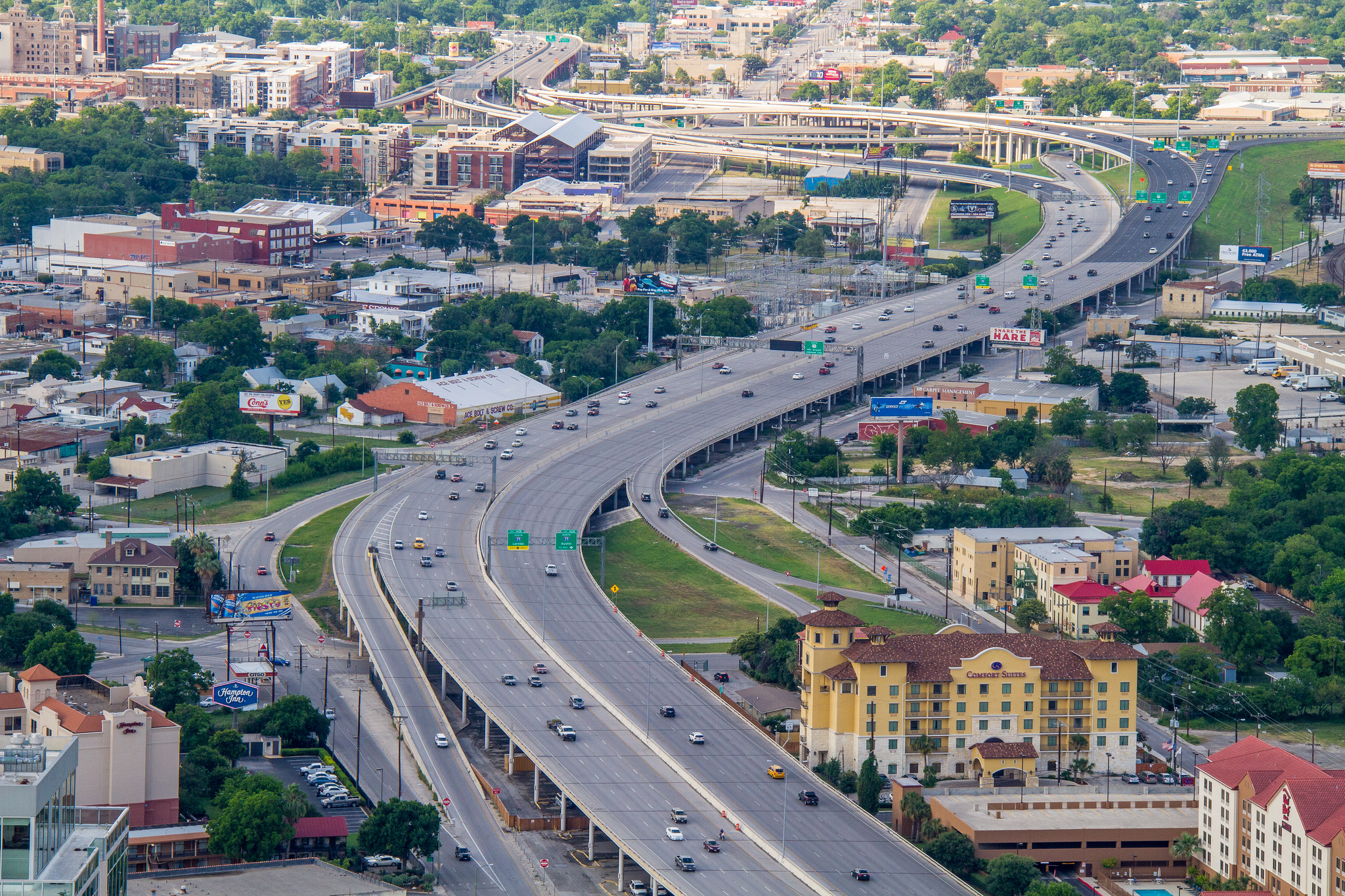Texas looks to voters to ensure billions for highway funding
Facing a population and economic boom sufficient to give Texas seven out of the top 15 fastest growing cities, state legislators are looking to voters to direct more revenue to build more highways, but without raising new fees or taxes.

Credit: Lotus Carroll on Flickr
Texas has responded to the boom by building toll roads, wider highways, and some mass transit options in a few cities, but the state DOT and many state legislators feel that Texas isn’t building what they need to serve the 1,500 new residents moving there everyday — and they’re on the lookout for more money.
Texas currently has what they call a “rainy day” fund replenished with revenue generated from gas and oil drilling taxes and fees. The fund has been used in the past to help fill budget gaps and avoid budget cuts during economic slumps.
The legislature has placed a measure on this November’s ballot (Proposition 1) amending the state constitution to divert half of these funds for the next ten years to a State Highway Fund, to be used exclusively for highway construction, repair, and maintenance. This fund could not be used for toll roads.
Texas’ gas tax is currently set at 20 cents per gallon and was last raised in 1991. The coalition urging its passage says that Proposition 1 will raise an estimated $1.7 billion within the first year.
Both Republican gubernatorial candidate Greg Abbott and his Democratic opponent Wendy Davis are supporting the measure while campaigning for office. Organized support comes from Move Texas Forward, Texas Future, Transportation Advocates of Texas, and a broad range of trade associations, chambers of commerce, and other advocacy groups across the state.
Directing a portion of money generated by the very thing driving Texas’ economic boom right now (oil and gas) into the transportation network seems rational. However, it would be even smarter to leave those dollars flexible enough to address pressing needs in the transportation network wherever they arise, not just on the highway system. With several large and growing metropolitan areas, the state is going to need to invest in trains, bus lines, freight projects, passenger rail to connect cities, and local street networks as well.
The Houston Chronicle describes opposition to the proposal as “token and largely unorganized.” President of the Houston Property Rights Association, Barry Klein, hoped for a defeat so it “would force transportation official to confront their spending demands, possibly leaving the state better off when it comes to prioritizing projects.”
 For more on important ballot measures to watch this Nov. 4, visit our Transportation Vote 2014 page.
For more on important ballot measures to watch this Nov. 4, visit our Transportation Vote 2014 page.
To better serve the states and localities stepping up to try and raise revenue to invest wisely in transportation, we are hosting the Capital Ideas Conference in Denver, Colorado on November 13-14 shortly after this year’s election. If you’ve been working on a transportation measure as part of a funding campaign, working to overcome a legislative impasse, or defending a key legislative win, this conference will offer a detailed, interactive curriculum of best practices, campaign tactics, innovative policies, and peer-to-peer collaboration to help your initiative succeed.
4 Comments
Join our email list
Our three principles
It’s past time to elevate the national conversation about infrastructure.
Learn more about our platformLatest From The Blog

Five for ’25: What to expect on transportation…
Dec 11th, 2024

Meeting the moment after the 2024 elections
Nov 27th, 2024



A pause for TransportationCamp DC
Nov 19th, 2024

I cannot find the zoom link, I registered…
Jan 6th, 2024

A rare look behind the curtain of Transportation…
Jul 28th, 2023


In what Harrison Ford said was his most…
Jul 25th, 2023

Good example, walking to the local taco place…
Jul 24th, 2023











Pingback: Today’s Headlines | Streetsblog USA
Pingback: 6 Transportation Ballot Initiatives to Watch Next Tuesday | Streetsblog USA